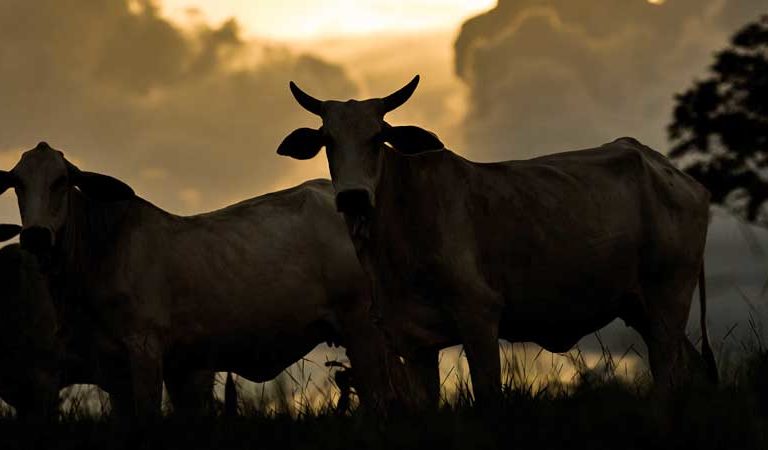RIO DE JANEIRO, BRAZIL – The export of live cattle, of which Brazil is one of the world leaders with 400,000 head shipped per year, not only causes suffering to the animals but also puts pressure on the deforestation of the Amazon, according to a study released Monday by the non-governmental organization Mercy for Animals (MFA).
This is because most of the ships with which Brazil exports live cattle leave from the port of Vila do Conde, in the Amazon state of Pará (north), and are supplied with cattle from nearby ranches, many located in areas with high rates of deforestation, according to the U.S. non-governmental organization.

Mercy for Animals (MFA) researchers monitored the ports from which Brazil ships live cattle, mainly to countries in the Middle East and North Africa, the companies that dominate this market, and the farms where the exported animals are raised to prepare the study that supports its “Shameful Export” campaign.
MFA’s vice-president for research, Luiza Schneider, explained to press agency efe that the data collected in the research highlighted the exposure of the live animal export chain with the illegal deforestation of the Amazon and slave labor in Brazil.
“The practice of both crimes was observed in indirect suppliers, that is, in farms that send animals to the farms supplying the exporting companies. Furthermore, we verified that some of these farms are included in the “dirty list” of slave labor and that one of these properties is seized for illegal deforestation”, said Schneider.
Brazil is not only the owner of the largest cattle herd in the world, with 217 million head (14.3% of the world herd), and the largest producer and exporter of beef, but also the largest supplier of live cattle, with 800,000 animals exported by sea in 2019 and 2020.
Between 2012 and 2020, Brazil exported 2.6 million cattle, mostly to Turkey, the destination of 44.8% of the animals, and Egypt, Lebanon, Iraq, Jordan, Saudi Arabia, and the United Arab Emirates.
ANIMALS TRAVEL IN OVERCROWDED CONDITIONS AND EXPOSED TO ACCIDENTS
The journeys, usually lasting a month, are not free of serious accidents. For example, in February 2012, a problem in the ventilation system of a ship bound for Egypt caused the death of 2,750 animals, and in November 2015, the shipwreck of a cargo ship at the dock of the port of Vila do Conde caused the death of 5,000.
“Exported animals suffer greatly because they are kept confined in ships for weeks and forced to lie on their own feces and urine, in addition to being subjected to brutal means of slaughter in the destination countries. We can no longer accept this. We have to ban this terrible practice,” said Schneider.
But the study also revealed that “the export of live animals offers a significantly higher risk of deforestation than the export of beef because it is heavily concentrated in the Amazonian state of Pará”.
According to the study, Pará accounted between 2015 and 2017 for 97.9% of beef exports originating in the Amazon and 71.2% of Brazilian exports of live cattle.
According to the research, most exported cattle come from municipalities in Pará, three of which are on the list of those who logged the most in the Amazon in the last two years.
“The farms in Pará that supply live cattle for export to Minerva (the leading company in the sector) are located in 81 municipalities, 30 of which are among the 100 that have deforested the Amazon the most since 2008,” according to the complaint.
Through its “Shameful Export” campaign, MFA hopes to collect a greater number of signatures for a petition in which it asks Congress for speed in voting on a bill under discussion since 2018 and prohibits the export of live cattle.

